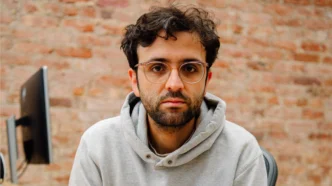Prediction market startup Kalshi has launched a high-stakes legal battle against two of the biggest U.S. gambling regulators—New Jersey and Nevada. After the states tried to shut down the company’s sports trading operations. Kalshi argues that it operates under federal oversight and is therefore exempt from state gambling rules. Setting up a broader fight over who really gets to police this new type of financial instrument.
Kalshi’s co-founder and CEO, Tarek Mansour, isn’t backing down. At a recent StrictlyVC event, he dismissed the state-level crackdown, saying, “We’re not necessarily very concerned because we are regulated at the federal level. The state law doesn’t really apply.” The startup’s core argument is that since it’s already licensed by the Commodity Futures Trading Commission (CFTC). States don’t have jurisdiction to regulate its operations—even when it involves sports prediction contracts.
This legal push could open the door for Kalshi to expand further into the lucrative sports betting space. But the stakes go beyond gambling—this lawsuit could spark a jurisdictional fight between state regulators and the Trump administration. Under which Kalshi’s influence appears to be growing.
Kalshi has a history of pushing back against regulatory pressure. Last year, it successfully sued the CFTC over its right to operate election-related prediction markets. Eventually handling over $1 billion in trades tied to the 2024 U.S. presidential race. That legal win paved the way for Kalshi’s expansion into sports, where it now allows users to bet on major events like March Madness and the Super Bowl—even in states where gambling is technically banned.
But not all states are turning a blind eye. Six of them—Nevada, New Jersey, Illinois, Maryland, Ohio, and Montana—have issued cease-and-desist letters, accusing Kalshi of offering unlicensed sports betting. These states argue that Kalshi hasn’t secured local licenses and isn’t paying state-level gambling taxes, regardless of its federal approval.
Mansour maintains that the real issue is industry politics. “There’s a massive casino lobby that’s unhappy” with Kalshi’s model, he said, pointing to financial incentives that might be motivating states to block the company’s operations.
Kalshi scored an early victory in Nevada this week, where a federal judge ruled the startup can continue operating while the case proceeds. But the broader question remains: are prediction markets a form of regulated derivatives trading, or simply gambling by another name?
According to Mansour, the difference is critical. Gambling, he says, is artificial risk—like betting on dice rolls. Prediction markets, on the other hand, are more akin to financial derivatives. They help traders and observers understand and “price” future events, offering insights that traditional markets can’t.
For example, Kalshi’s market around a potential TikTok ban helped quantify the chances of the app being banned, which Mansour sees as a valuable tool for businesses and policymakers alike.
Of course, that’s a narrative that benefits Kalshi. The company was most recently valued at $787 million, according to PitchBook. With a firm foothold in sports prediction markets, that valuation could surge dramatically.
The startup’s influence also appears to be growing politically. Kalshi has ties to the Trump administration, which became more visible during the 2024 election. Kalshi’s platform predicted Trump’s victory days ahead of official results, even as most polls disagreed.
Since then, the connections have deepened. In January, Kalshi brought on Donald Trump Jr. as a strategic adviser. By February, a former Kalshi board member was tapped by President Trump to lead the CFTC. In March, the company’s general counsel left to join Elon Musk’s DOGE group at the Securities and Exchange Commission.
Mansour, speaking onstage, avoided appearing too cozy with Trump but acknowledged that the administration has been “pro-innovation,” particularly in financial markets.
Whether Kalshi’s legal stance holds up will likely reshape how prediction markets are regulated in the U.S.—and whether startups like it can continue to disrupt both finance and gambling industries. For now, the company appears to be taking full advantage of regulatory ambiguity, and it’s betting that the courts will see prediction markets not as gambling—but as the next evolution of financial trading.













